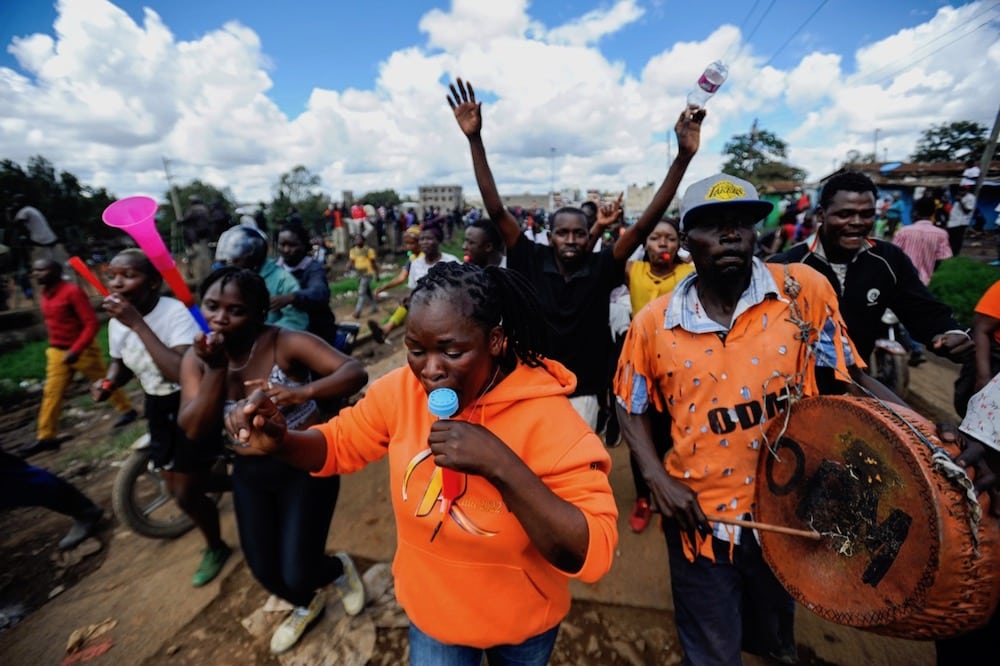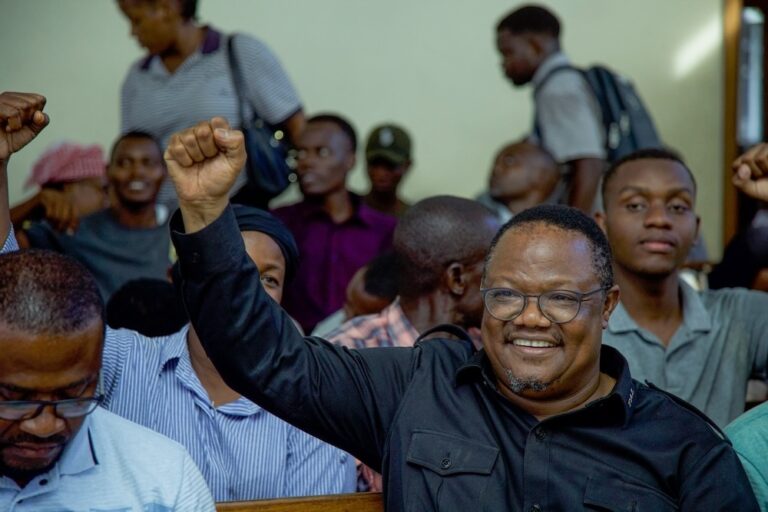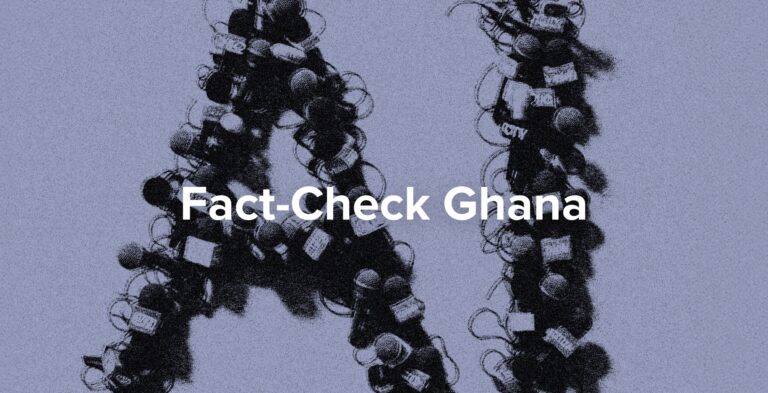Africa: A free expression round up produced by IFEX's Regional Editor Reyhana Masters, based on IFEX member reports and news from the region.
Kenyan protests and the rights and responsibilities of media, expulsions and smear campaigns in Burkina Faso, and World Press Freedom Day messages call for strengthening of media freedom safeguard measures across the continent.
Kenyan media advocate for their right to report
Kenya’s spate of opposition-led protests that began on 20 March continued into April, with the media bearing the brunt, resulting in more than 20 journalists being assaulted by security forces and opposition party supporters.
Background
The discontent amongst Kenyans dates back to last year’s disputed elections, with accusations of vote rigging evolving into growing resentment and anger over the high cost of living. In February, the political coalition comprised of 26 fully registered political parties – the Azimio La Umoja (Declaration of Unity) alliance, formed prior to the 2022 elections – called on their party members and citizens to take their frustrations to the streets.
The former deputy prime minister Raila Odinga , who heads the Azimio La Umoja One-Kenya coalition party, called for a pause on 2 April ahead of a dialogue requested by President William Ruto. Odinga brought to the dialogue a list of conditions, and warned that the demonstrations would resume if no meaningful progress was made – which they did, following an impasse.
Media push back
The Media Council of Kenya issued a press statement “giving a stern warning to law enforcers and demonstrators linked to violation of freedom of the press.”
The almost 80 events of political violence, which culminated in more than 50 reported fatalities between 25 March and 21 April 2023, paralyzed Nairobi and other major cities, and heavily dented the country’s already fragile economy.
Media stakeholders called out deputy president Rigathi Gachagua and other government officials for attempting “to deny the free flow of information to the public,” after news broke of an alleged plan by the government to shut down the internet and some media houses.
A statement, signed by 17 media organisations under the Kenya Media Sector Working Group collective, said that “plans to shut down the broadcast media and/or the internet and throw the country into information darkness . . . would be a most ill-advised and a grievous assault on Kenya’s democracy.”
The strongly worded declaration went on to demand the safety of journalists and compensation for journalists who required medical treatment, as well as for equipment damaged or lost as a result of the violence. It insisted that the director of public prosecutions provide an update on the status of investigations and a plan of action to prosecute the attackers.
Media also condemned Odinga for calling for a mass boycott of The Star newspaper.
The Media Council of Tanzania expressed concern at the attacks in Kenya by “state and non-state” actors and the actions of some influencers who exacerbated the dangerous climate for journalists by profiling media outlets. The MCT called on “all actors in the Kenyan political milieu to exercise restraint and respect for media freedoms.”
In solidarity with the Kenyan media, the International Press Institute wrote to relevant government departments expressing concern over the deteriorating media environment and pointed out that “media coverage of demonstrations and protests should not be construed as inciting violence or hate speech and neither should it be viewed as glorifying violence.”
Expulsions and smear campaigns
Reporters Without Borders reports that the expulsion from Burkina Faso of Agnès Faivre, a correspondent for Liberation, and Sophie Douce of Le Monde Afrique, condemned by the Media Foundation for West Africa, is part of a broader set of actions aimed at tarnishing the reputation of the two journalists and their colleagues. The work, credibility, and safety of three Burkinabé reporters – Lamine Traore, Hyacinthe Sanou, and Boukary Ouoba – is also being intentionally undermined by a disinformation strategy by a dubious organisation calling itself the Pan-African Group for Trade and Investment (GPCI).
The expulsion took place just days after the military junta suspended French broadcaster France 24 for airing an interview with a leading member of a jihadi rebel group. In December 2022, the authorities suspended Radio France Internationale (RFI) for what they claimed were false reports.
In neighbouring Mali, the French media have not fared any better, as the transitional military authority suspended RFI and France 24 in March 2022.
The spate of smear campaigns and other media violations are captured in a recent RSF publication: What It’s Like to Be a Journalist in the Sahel provides useful insights and includes interviews with dozens of experts and journalists living or working in the region. In addition to an increased presence of “radical armed groups who do not hesitate to kill reporters or kidnap them” journalists also face challenges posed by governments in the form of restrictions of their movement and their right to report.
“We need to pay more attention to the mechanisms behind the production and dissemination of false information in order to better understand and combat it.” – Valdez Onanina, Africa Check
Raising voices for free expression: IFEX members mark World Press Freedom Day
Many organisations in the IFEX network advocate for press freedom in both online and offline spaces year-round. In honour of World Press Freedom Day, members in Africa took part in various initiatives and activities to defend the rights of journalists, which are inextricably connected to people’s right to freedom of expression and information. Here are some of the highlights showcasing how members marked the day:
In Nigeria, Media Rights Agenda issued a statement appealing to the government to provide adequate safeguard measures for the media, pointing out how “the relentless attacks on the media over the years had also undermined the general human rights protection for all Nigerians, democracy and sustainable development in the country.” As part of its WPFD day activities, the Lagos-based International Press Centre announced the establishment of a Centre for the Safety and Protection of Journalists.
The Media Foundation for West Africa held an online discussion that honed in on attacks on journalists and the implications for human rights in West Africa. Panelists included Liberian freelance journalist Bettie Johnson Mbayo; Malick Konaté of Horon TV in Mali; Haruna Salisu Mohammed, the publisher of the Nigerian WikkiTimes; Manasseh Azure Awuni, editor-in-chief of Ghana’s The Fourth Estate; Isidore Kouwonou, editor-in-chief of Media L’Alternative in Togo; and Pape Alé Niang, editor of the Senegalese Dakar Matin.
Haruna spoke of the lawsuits that WikkiTimes is facing from politicians and business owners following the publication of investigative journalism stories, while Niang explained how intolerant the Senegalese government has become of critical journalists and dissenting voices, as President Macky Sali looks set to seek a third term in the 2024 elections. A March Amnesty International press release noted that: “Senegalese authorities are intensifying repression ahead of the 2024 presidential election by cracking down on human rights, restricting civic space, banning protests and detaining a journalist and opposition figures”.
In their WPFD statement, the Center for Media Studies and Peacebuilding (CEMESP) in Liberia launched their Comprehensive National Framework, outlining a strategy for the safety of journalists. CEMESP called on the government to continue widening “the civil space for free and unhindered expressions to fulfill its commitments under local and international conventions.”
The South Sudan Broadcasting Association played host to Irene Ayaa, the principal of the Media Development Institute at the Association for Media Development In South Sudan (AMDISS), who spoke on issues of press freedom in the country. At a second event at the National Communication Authority, Ayaa noted that she had made it clear “that we shall work with the government to build a vibrant media in South Sudan without compromising the independency of the media.”
Koang Pal Chang, chairperson of AMDISS, asked the government to allow Radio Miraya back on air, and also called on shareholders of the Juba Monitor newspaper to resolve their differences. (Radio Miraya, owned and run by the United Nations Mission in South Sudan, was suspended in 2018 by the South Sudanese Media Regulatory Authority for failing to acquire a broadcasting license to operate.)
MISA Zimbabwe kickstarted their WPFD programme on 2 May with a multi-stakeholder workshop held in Harare, under the banner “Freedom of Expression as a Public Good: Pivotal to the enjoyment of other rights.” Participants included representatives from the Zimbabwe Republic Police (ZRP), Zimbabwe Media Commission (ZMC), the Parliament of Zimbabwe, the United Nations Educational Scientific and Cultural Organisation (UNESCO), media, and civil society.
Among other topics, they discussed the critical issue of the safety of journalists ahead of upcoming elections, and the impact of policy frameworks on the work of the media. Consecutive commemorations in Mutare, Masvingo, Gwanda, Bulawayo, Chinhoyi, Kwekwe and Gweru, on 6 May, also drew attention to the high cost of data, and the rise of misinformation and disinformation and its effect on the political discourse in the country.
The organisation’s World Press Freedom Day blog highlighted critical issues in the region, from the enactment of laws negatively impacting on the right to access to information and the right to free expression to the weaponization of internet shutdowns.
MISA’s commemorations culminated with a statement to the African Commission on Human and Peoples Rights outlining key issues in the region, and concluding with recommendations, including the repeal of “legislation that has the potential to infringe on freedom of assembly and freedom of expression in countries such as Botswana, Malawi, Mozambique, Zambia and Zimbabwe.” In the statement, Regional director Dr. Tabani Moyo emphasised the need for solidarity and collaboration:
“A collaborative framework will minimise risk for the local players, increase skills and knowledge transfer levels on a sustainable basis that feeds into building organic solidarity movements to continue pushing back attacks on expression.”
In brief
- Just three months after Martinez Zogo and Jean-Jacques Ola Bebe were murdered, Cameroonian journalists Ousman Alh Boubakari and Aminou Alioum are asking for protection, after the mayor of city in the north of the country reportedly threatened to kill them.
- A policy brief by CIPESA points out how many African governments pin down internet service providers and get them to illegally divulge information about their subscribers – despite being aware of the gross violation of the right to privacy and knowing that it is a breach of international law.
- Kenya’s Labour court not only blocked Meta from terminating contracts of moderators, but also ruled that it could be sued in the country along with its local partner Sama, for wrongful termination of the moderators contracts.



